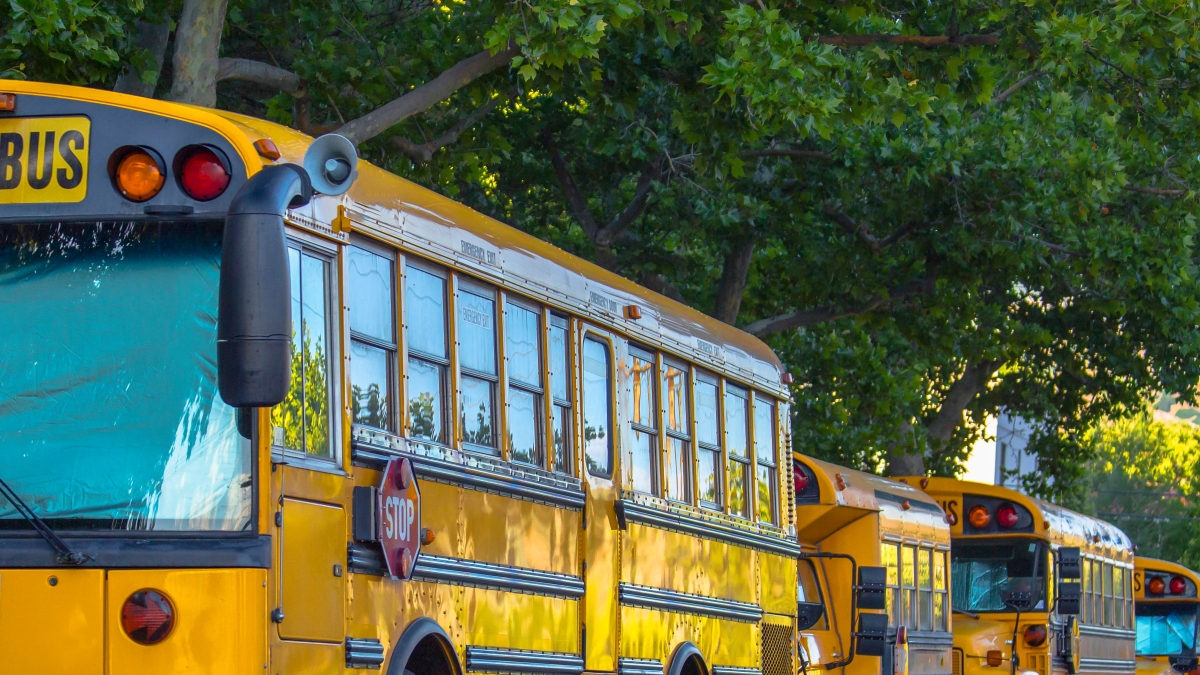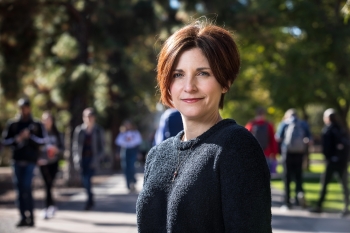Annual symposium to explore fundamentals of trauma-informed education

Now in its eighth year, the Trauma Sensitive Schools Symposium is taking on the theme "Strengthening Our Foundation: The Building Blocks to Becoming Trauma Informed.” Adobe Stock photo
When it comes to fostering positive and safe classroom communities, teachers are on the front lines every day. And, as society changes, educators increasingly need access to the right tools, knowledge and training to support students and ensure their well-being in the classroom.
In this spirit, educators and school professionals across Arizona are gearing up for the 2024 Trauma-Sensitive Schools Symposium, which has become a cornerstone event for drawing attention to the critical need for trauma awareness and sensitivity within school systems.
Now in its eighth iteration, this year’s symposium is focusing on the theme "Strengthening Our Foundation: The Building Blocks to Becoming Trauma Informed.” Presentations and breakout sessions will explore key concepts in establishing trauma-informed practices and frameworks.
In school contexts, this can range from recognizing the signs of trauma to implementing supportive, culturally responsive interventions and creating compassionate spaces for student well-being.
The all-day conference — open for registration until May 31 — will feature presentations led by leaders in supporting positive school environments, including a keynote from January Contreras, president and CEO of Children’s Action Alliance. Afterward, breakout sessions will cover the foundations of trauma-informed education in each stage of schooling: early childhood, elementary, secondary and postsecondary. Attendees will receive a certificate for professional development upon completing the full conference day.
Considering the success of last year's symposium, which saw a record-breaking registration of nearly 700 educators, co-organizer and Professor in the T. Denny Sanford School of Social and Family Dynamics Sarah Lindstrom Johnson is enthusiastic about what’s in store.
Below, she explains why there is a need for trauma-sensitive education and what attendees can expect this year.
Note: Responses have been lightly edited for grammar, length and/or clarity.
Question: Why are Arizona educators interested in trauma-sensitive education?
Answer: Arizona is actually an educational leader in thinking about trauma-sensitive education. It began with an initiative at Phoenix Children’s Hospital in the mid-2000s that launched the founding of the Arizona ACES Consortium, one of the co-sponsors of the conference. We are happy to be working with them on the eighth annual Trauma Sensitive School Conference, geared towards creating a space for the Arizona education community to discuss how to address the social determinants of education.
Additionally, recent state data suggest that one in four children have experienced two or more ACES — adverse childhood experiences — including negative household factors (parental conflict, household mental illness/drug use/incarceration), poverty, community violence, discrimination and/or parental death. These have known consequences on educational outcomes.
Q: Why is it important to go back to the foundations of building trauma-sensitive schools?
A: While building blocks may seem elementary as a theme, it is critical to always return to the basics to remember how foundational safety and relationships are to child development, and to ensure that schools have the resources needed to provide these.
Often initiatives in schools are conceptualized as programs or models. In actuality, the theme of this conference highlights the importance of the basics — perceptions of safety, relationships with students and families, understanding the “reason” for behaviors and providing appropriate supports — and the tools and resources needed to accomplish these in schools.
In addition to highlighting real-world examples of educators, schools and communities that are doing remarkable things in Arizona, we also want to highlight opportunities to support schools through varying federal and state initiatives as well as policies.
Q: What should attendees be looking for this year?
A: We are very excited that January Contreras, the president and CEO of Children’s Action Alliance and the former assistant secretary for Children and Families at the U.S. Department of Health and Human Services, will be our keynote speaker this year. In addition, this year offers a new specialized pathway focused on thinking about trauma-sensitive postsecondary environments — so sign up, ASU faculty! — in addition to existing discussions of early childhood education, elementary education and secondary education.
Q: What outcomes or impacts do you hope to see for educators and their school communities after participating in the conference?
A: The Trauma Sensitive Schools Symposium offers an opportunity to one: identify at least one new practice that educators can retool or emphasize next school year. And two: provide connections with other educators across the state — and really the world, as we have gone virtual. In addition, particularly given high levels of educator stress, including vicarious trauma, we want our educators to have a space to feel valued, heard and hopeful for the future of schools and students.
The event is jointly organized by ASU PFS CARE (funded through a grant from the Institute for Educational Sciences, for which Lindstrom Johnson is the principal investigator), the AZ ACES Consortium and the Arizona School Boards Association.
More Arts, humanities and education

School of Social Transformation faculty member assumes new title with NSF
School of Social Transformation faculty member and Founding Executive Director of the Center for Gender Equity in Science and Technology (CGEST) Kimberly Scott is accepting a new position…

ASU's Neal Lester reflects on life, death of poet Nikki Giovanni
When Neal Lester heard on Monday that poet and activist Nikki Giovanni had died, the news hit hard.Lester, the founding director of Arizona State University’s Project Humanities and a Foundation…

Learning by stepping outside
By Adriana MaestasAmid a world increasingly captivated by all things digital, more than 200 Arizona teachers have crafted immersive educational experiences that nudge students to step away from their…
